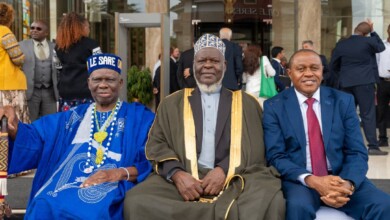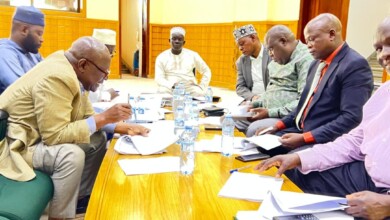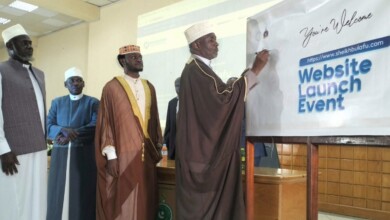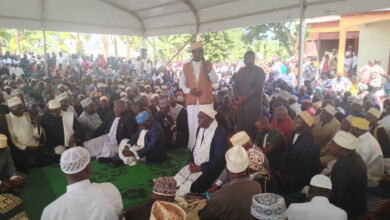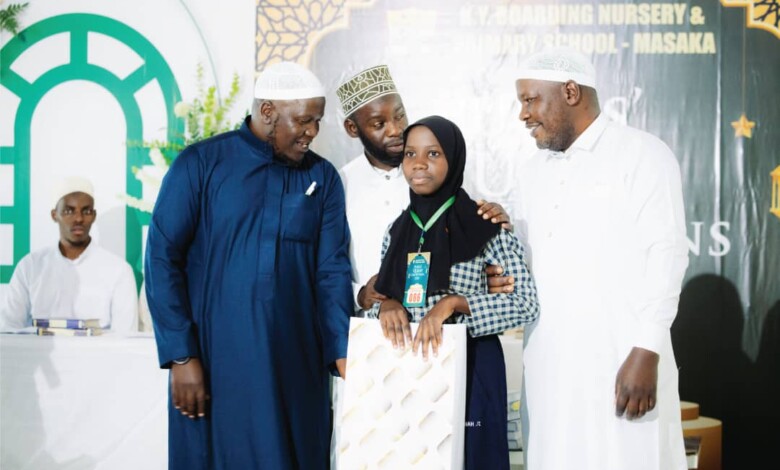
By Hashim Kalungi
Sheikh Ibrahim Ntanda Muzzanganda, the 1st deputy Supreme Mufti, is worried that the uncontrolled online circulation of polytheistic material could affect the spirituality of young Muslims.
To mitigate the impact, the cleric urges parents to instill religious morals in their children, especially the girl child, to save them from acts of polytheism.
Ntanda made the call on November 24, while officiating at the Quran competitions held at KY Primary School in Masaka.
He attributed the alarming rise immoral acts associated with polytheism to the lack of religious instruction and guidance during childhood.
According to Sheikh Ntanda, people who practice their religion cannot be involved in such acts.
Sheikh Ntanda cited the viral video of a woman bathing in the middle of the road, saying that such acts are orchestrated by polytheists who mislead people into believing that their affairs can be settled by such shameful acts.
“Someone who was taught religion cannot do such things. You may recall another lady here in Masaka who fed her colleague’s child feaces. All these show that parents of such a person failed on their responsibility to nurture and instill religious values in their children,” he said.
He lauded the school administration and teachers for teaching pupils the Quran and providing guidance. He stated that this is the way to produce a well-rounded child who will benefit their parents and the community as a whole.
Hajj Medi Mutebi, the school’s director, noted that incorporating Islamic studies into the curriculum is a daunting task due to the negative attitudes of some parents.
Despite the challenges, Mutebi said, the school is doing its best to ensure that learners get an all round education that will benefit them in the worldly life and the hereafter.
“The school is committed to ensuring that pupils learn their religion, given its numerous benefits. We urge parents and the public to support us in this endeavor, as our students have much to learn,” he said.
The pupils competed in various categories, including hifidh (full memorization) of Juz Amma and Juz Tabaraqa, presentation of a sermon, and reciting religious poems. The Juz Amma recitation attracted 10 competitors, and Gwiza Aiman Ramadhan won, followed by Abdul Rahman Ibn Huzair, Kagimu Habibu, Farhan Taaj, and Ntale Ridhwan Baker.
In the category of Tilaawa 10 pupils competed in the recitation of Juz Tabaraka. Hudah Namubiru emerged winner followed by Hibah Nakabugo, Abdul Kabir Kabugo, Sumayyah Bint Ibrahim, Rahmah Nyamukeera and Hassan Waswa Nkwanga respectively.
The recitation (Tilawa) of half of Juz Amma was won by Aliyah Ndagire followed by Nashim Ssemakula, Zakiyyu Namakula, Ummah Ssekanjako, Rania Namubiru, and Sakiinah Nalinnya.


